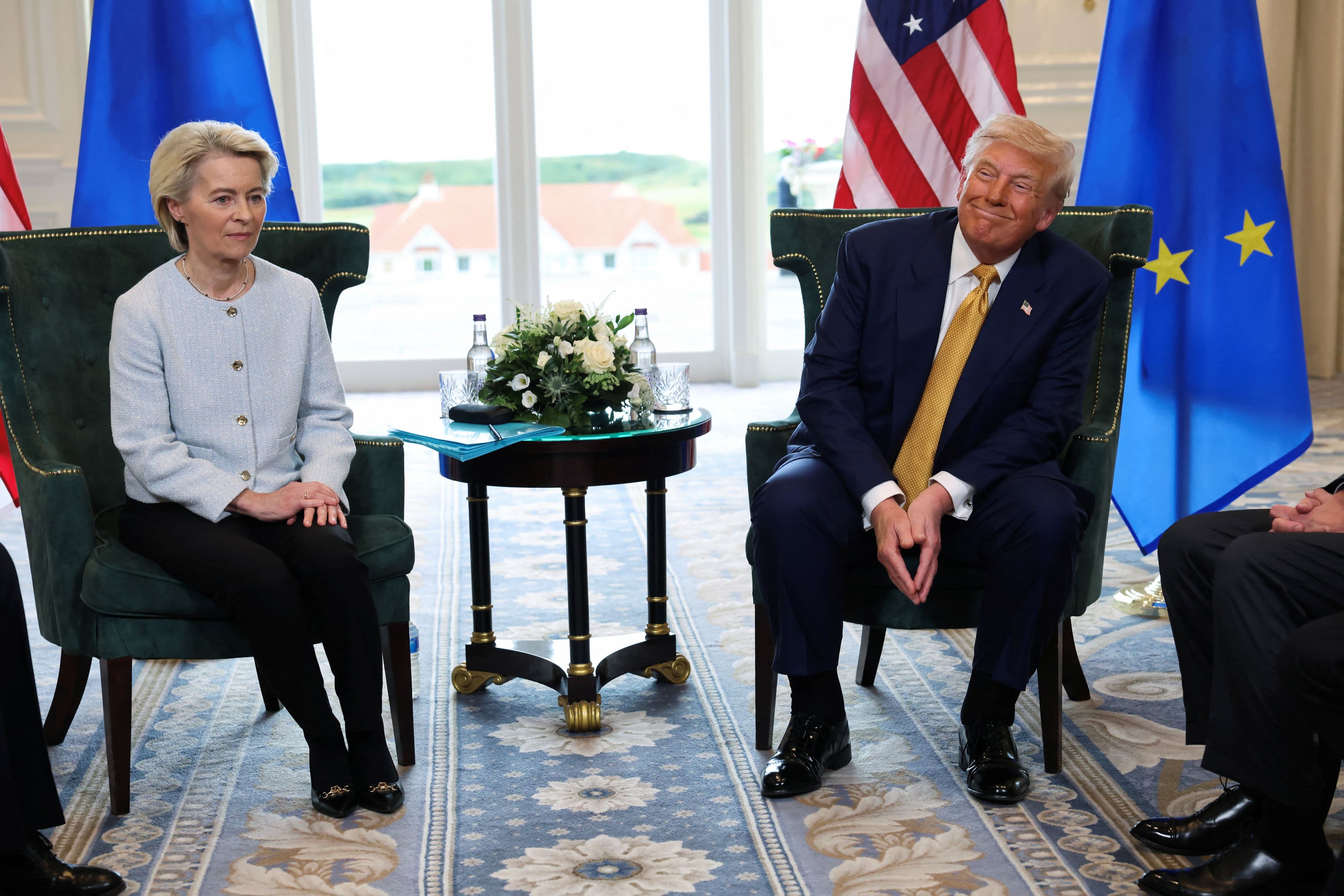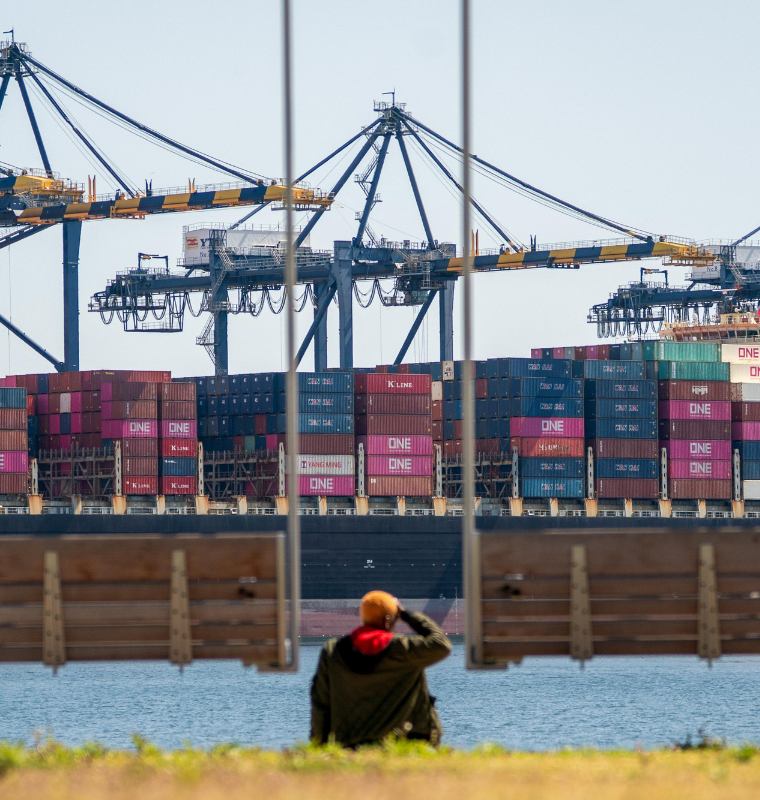EU Postpones Planned U.S. Tariffs by Six Months to Facilitate Ongoing Trade Negotiations
EU Postpones Planned U.S. Tariffs by Six Months to Facilitate Ongoing Trade Negotiations
By
Rachel Steinberg
Last updated:
August 5, 2025
First Published:
August 5, 2025

U.S. President Donald Trump meets with European Commission President Ursula von der Leyen, in Turnberry, Scotland, Britain, July 27, 2025. | Evelyn Hockstein | Reuters
The European Union announced on Monday a six-month suspension of its planned retaliatory tariffs against the United States, originally set to take effect this Thursday. This decision comes as part of a strategic effort to maintain open trade channels and allow for continued negotiations following weeks of intense discussions between EU Commission President Ursula von der Leyen and U.S. President Donald Trump.
Background: Tariff Disputes and Trade Negotiations
The EU’s countermeasures were designed in response to the U.S.’s tariffs announced last month, including a 15% levy on most European imports, notably automobiles. These tariffs, part of Trump’s broader trade agenda, targeted key EU exports to the U.S., threatening to escalate trade tensions between two of the world’s largest economic blocs.
However, on July 27, 2025, a pivotal agreement was reached in talks between President Trump and Ursula von der Leyen. The deal seeks to restore predictability for businesses and consumers on both sides of the Atlantic by delaying the imposition of these tariffs and establishing a framework for further trade discussions.
Official Statements and Implications
An EU Commission spokesperson highlighted that this suspension represents a significant concession from the 27-member bloc, emphasizing that the move “restores stability and predictability for citizens and businesses on both sides of the Atlantic.”
The suspension is expected to take formal effect on Tuesday, allowing both parties to finalize a Joint Statement outlining detailed trade arrangements.
While the White House has yet to publicly comment on the EU’s announcement, this development signals a mutual interest in avoiding a full-scale trade conflict.
Key Components of the July Trade Agreement
- The U.S. agreed to delay new tariff rates, initially scheduled for August 7, after previously pushing back the date from August 1.
- The EU committed to removing significant tariffs, including a complete elimination of tariffs on U.S. industrial goods exported to Europe.
- The EU pledged to purchase $750 billion worth of U.S. energy products and to increase investments in the U.S. by an additional $600 billion beyond current levels.
However, details on the implementation of these investments remain vague, as the EU cannot compel private sector entities to fulfill these purchase commitments.
Political vs. Legal Standing
The EU has clarified that the agreement is political and non-binding, meaning it requires further negotiations and internal approvals before becoming enforceable. Both sides plan to continue talks aligned with their respective legislative processes to solidify the agreement.
Broader Trade Context and Outlook
The EU’s move to delay tariffs underscores the complexity of U.S.-EU trade relations amid a backdrop of increasing global trade uncertainties. With tariffs looming on shipments from over 60 countries, including major economies, the global trade environment faces significant disruption risks if negotiations fail.
By postponing its countermeasures, the EU aims to foster a cooperative atmosphere that could prevent further escalation and encourage economic stability.
Popular articles
Subscribe to unlock premium content
Merch, Meals, and Memories

Innovating One Feature at a Time

Zero Taxes, Maximum Attraction – Why Monaco is the ultimate playground for the wealthy.

Merch, Meals, and Memories

Innovating One Feature at a Time

Merch, Meals, and Memories







.png)

